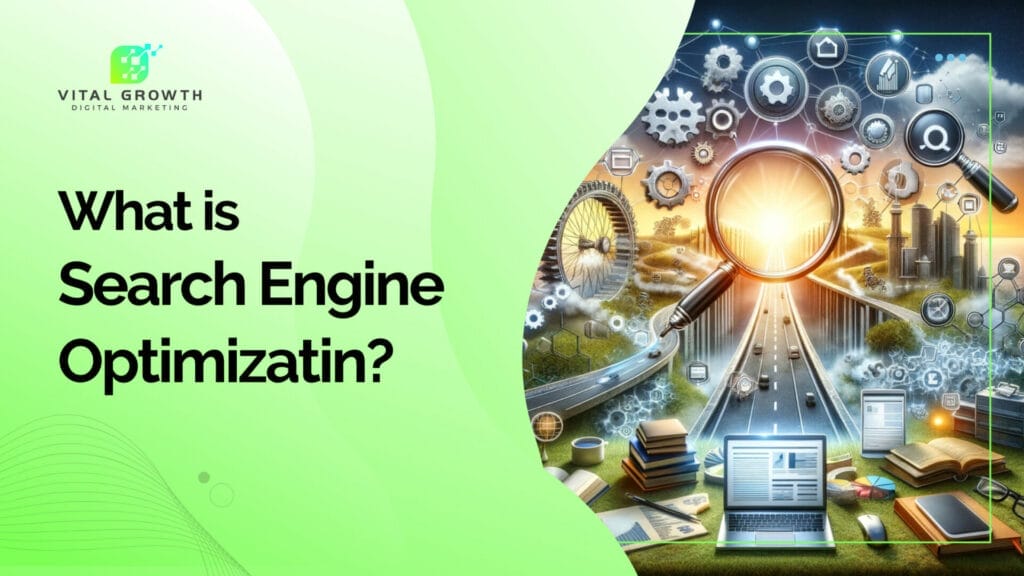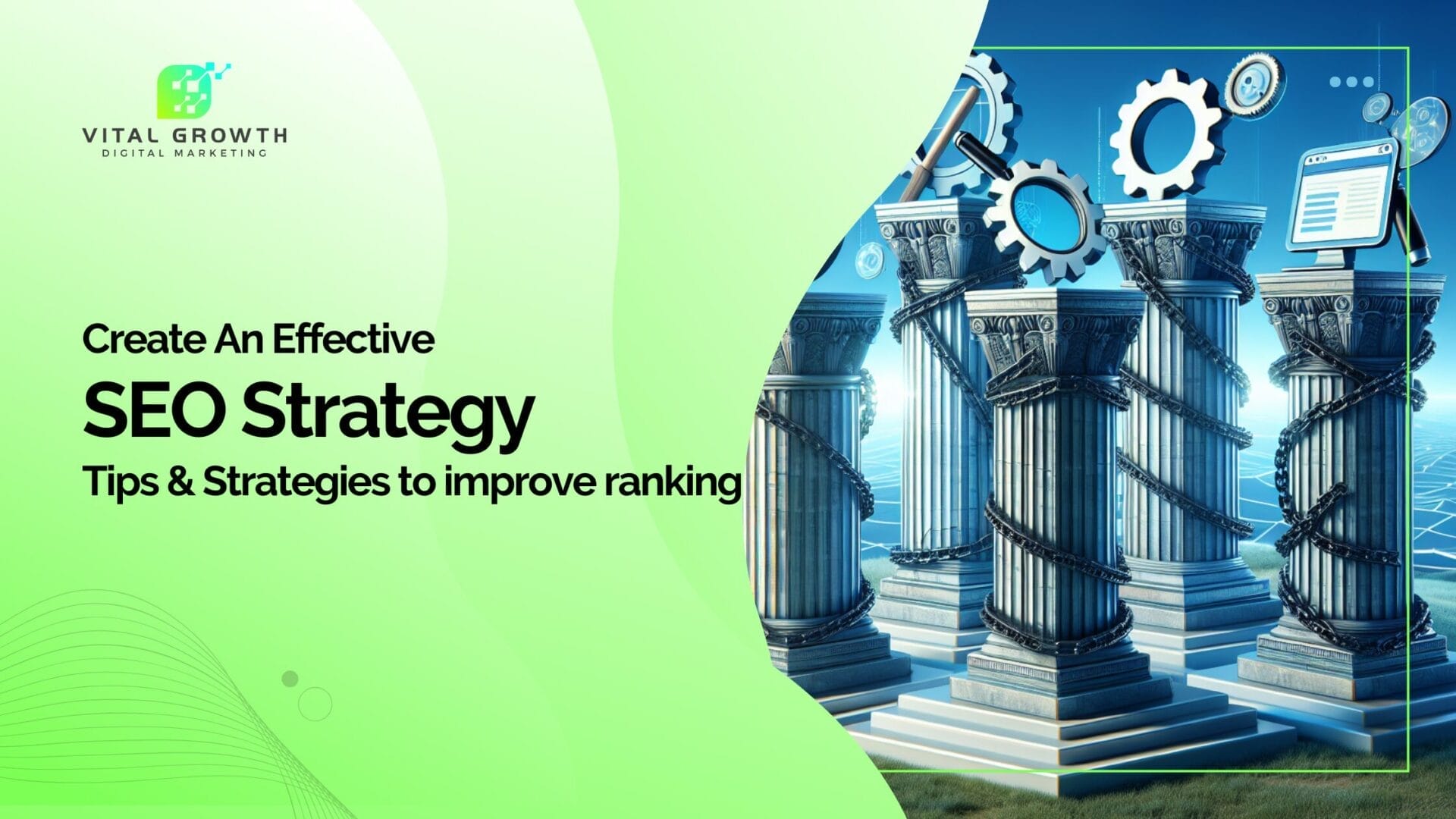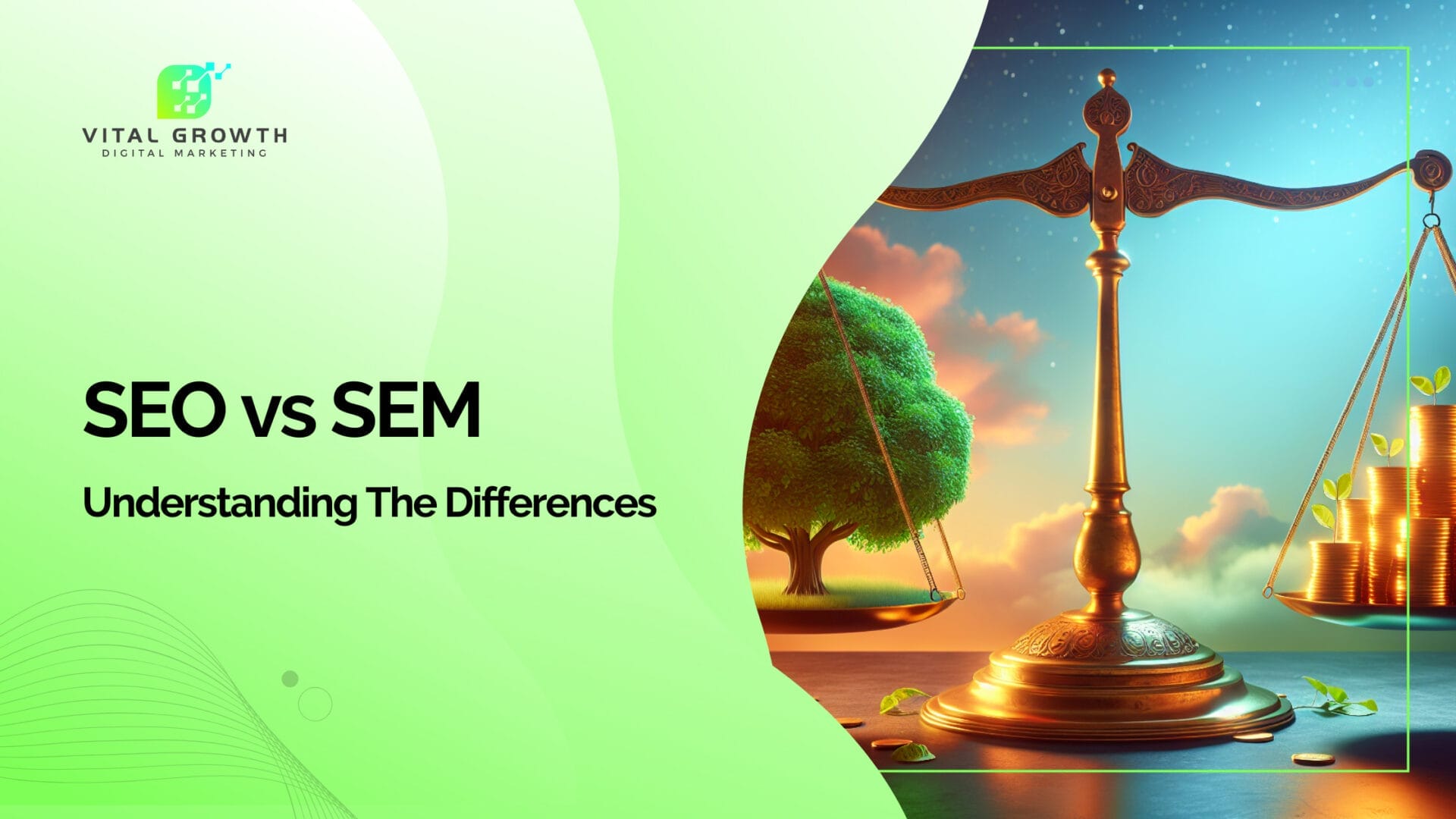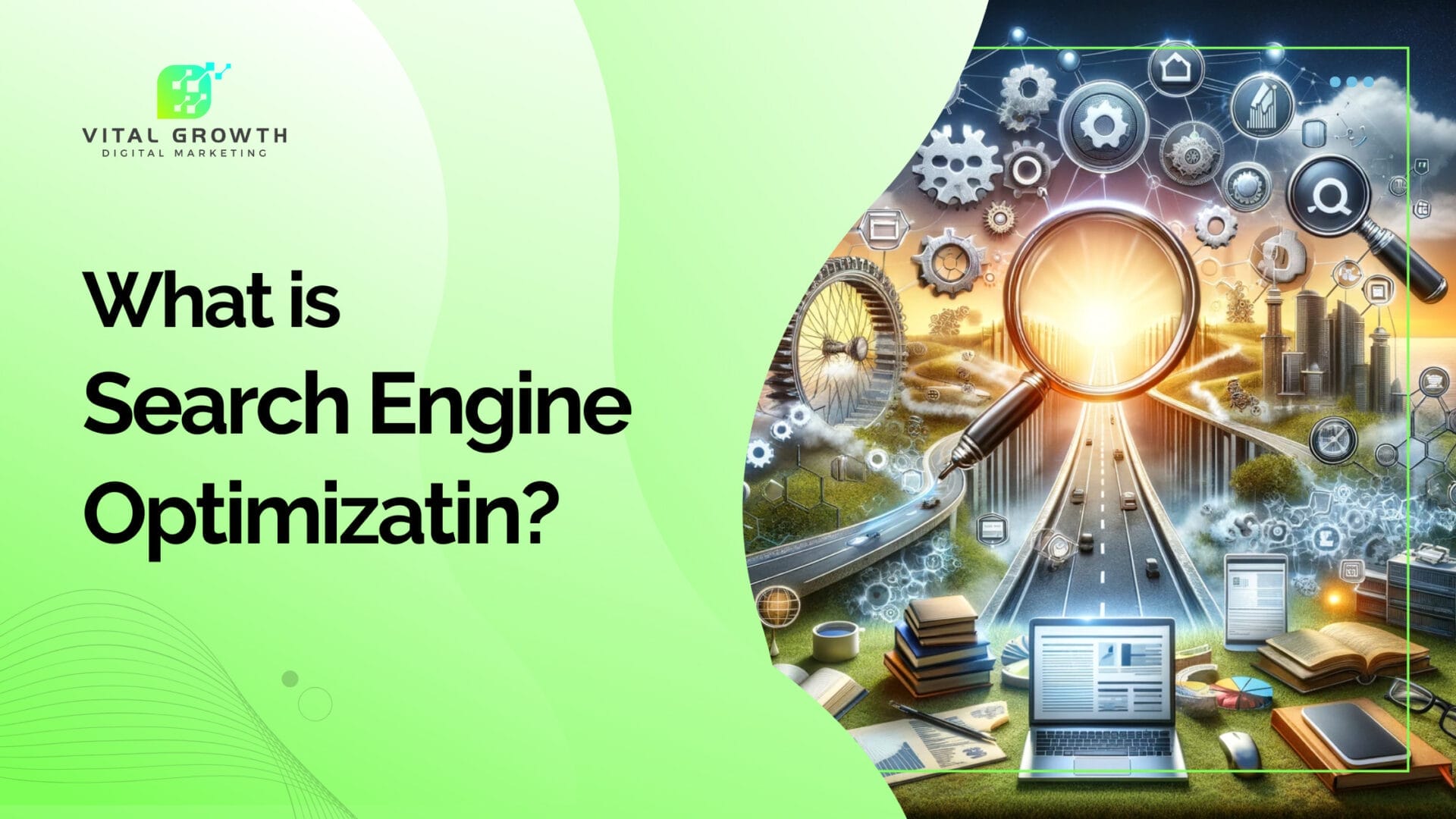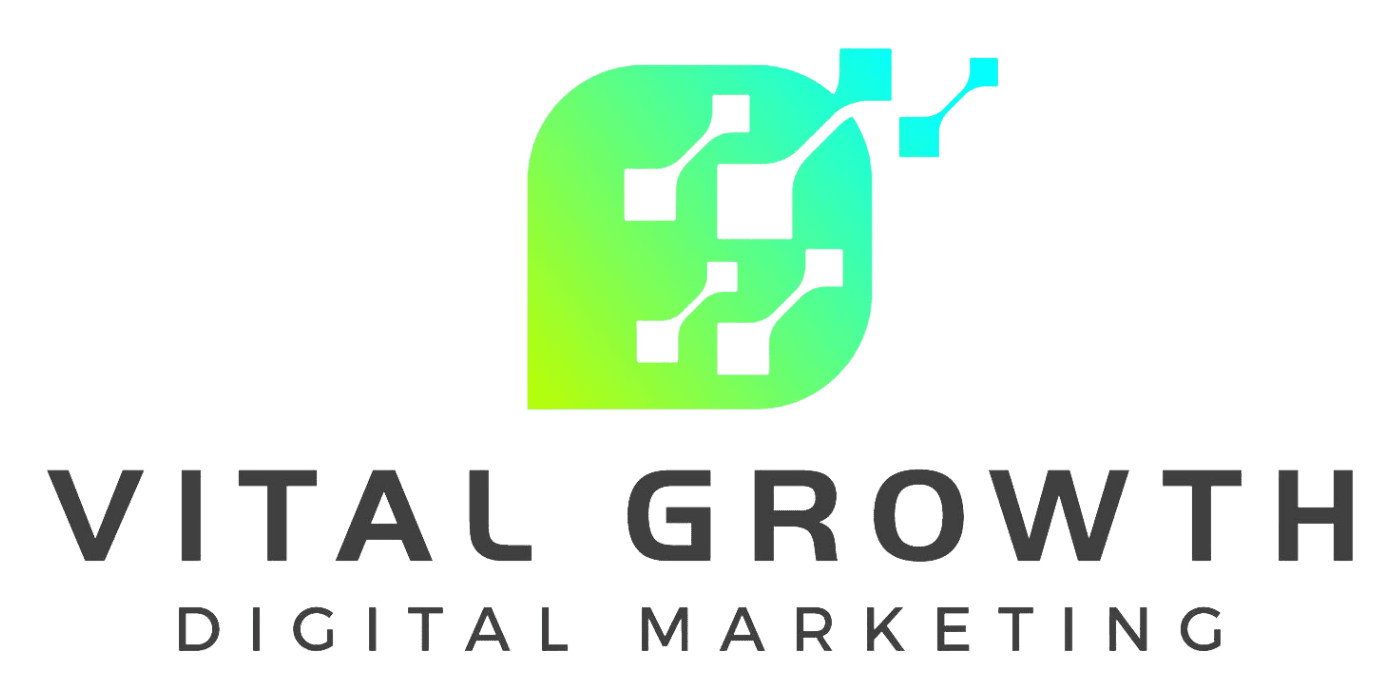What is Search Engine Optimization? SEO, which is an acronym for “Search Engine Optimization,” is a process of enhancing your website’s visibility in search engines like Google and Bing. Basically, SEO is the process of improving your website in different ways that help it rank higher in search results when users search for products you sell, services you provide, or information on topics where you have deep expertise and/or experience.
The higher your pages rank in search results, the more likely you are to get organic attention and attract customers to your website. The ultimate goal of SEO is to generate a strong flow of traffic that converts into customers, clients, or a loyal audience.
In this blog, you’ll learn:
- What SEO is
- What Search Engines are and how they work
- The difference between SEO, SEM, and PPC
- How to recognize the importance of SEO in digital marketing
- Exploring the various types of SEO: On-Page, Technical, and Off-Page
- Understanding how SEO works and its mechanics
- How to master SEO
Let’s get started on teaching you what is SEO and how you can use it to enhance your business, driving more traffic and conversions to your website.
Key Takeaways
- Search Engine Optimization (SEO) is a process aimed at enhancing a website’s visibility and user experience, thereby maximizing its organic ranking in search engine results. It’s an integral part of digital marketing, ideally attracting the right kind of traffic to your site.
- SEO involves multiple strategies, including on-page, technical, and off-page optimization.
- On-page SEO focuses on optimizing elements visible to users and search engines, such as title tags, meta descriptions, and content.
- Technical SEO ensures the website’s correct functioning, including website speed, mobile-friendliness, interlinking, and indexing.
- Off-page SEO involves activities that boost your website’s reputation and popularity, such as backlink building and social media marketing.
- High-quality content creation is another important part of SEO. This involves conducting thorough keyword research to identify relevant high-search-volume and low-competition keywords. The content should be well-structured, readable, match search intent, and tailored to meet the needs and expectations of the target audience.
- Measuring the success of your SEO efforts is important. This involves tracking Key Performance Indicators (KPIs) like organic traffic, conversion rates, and keyword rankings.
- Utilizing SEO analytics tools like Google Analytics, Ahrefs, SEMRush, and Moz Pro can provide insightful data about your website’s performance, guiding you in making data-driven decisions to enhance your SEO efforts.
- Staying updated with the latest SEO and search marketing trends, Algorithm updates, and best practices is also extremely important.
- You can do this through regular reading of SEO blogs and newsletters, taking online courses, and earning SEO certifications. All these efforts contribute to a robust SEO strategy that can significantly improve your website’s performance and drive more traffic and revenue.
Understanding Search Engine Optimization (SEO)
SEO is all about tweaking and tuning our websites to pop up at the top of a organic search results when someone searches for relevant terms related to your business. This not only puts our website in the spotlight but also increases its visibility in search engine results.
However, it’s not just about being seen – SEO is also about creating a website that’s more informative, user-friendly, and offers a smooth experience for Google users. And all these efforts pay off by boosting your organic rankings.
What is Search Engine Optimization?
Search Engine Optimization (SEO) is the art and science of boosting both the quality and quantity of website traffic, while making your site more visible to search engines. This in turn helps your website or webpage to climb the ladder of search engine results, gaining a more prominent position. An important aspect of digital marketing, and particularly search engine marketing, SEO is all about enhancing the visibility of your website to pull in more organic, or non-paid, traffic.
But SEO isn’t just about pulling in traffic – it’s about pulling in the right kind of traffic. It’s about reaching out to those users, organically, who are genuinely interested in the products or services you offer, ensuring that your website attracts visitors who are likely to become customers, clients, or loyal followers.
Importance of SEO
The significance of SEO is immense.
Its function in attracting organic traffic and enhancing the user experience is priceless for businesses. However, SEO is not just about driving traffic. It’s also about providing users with high-quality, relevant content.
When it comes to digital marketing, content reigns supreme – and SEO is its crown, with the dominant search engine, currently Google, setting the standards.
How Search Engines Work
Similar to how a librarian must comprehend book arrangement to assist library visitors in their search, website owners must understand how search engines operate to secure high ranks for their sites in the search outcomes.
Central to this are search engine crawlers, sometimes referred to as spiders. These crawlers are programs utilized by search engines such as Google and Bing, that scan the internet to help search engines discover and understand pages for their algorithmic search results.
Crawling and Indexing
The procedure of crawling and indexing mirrors a librarian scanning a book, understand its content, and deciding its placement.
This is precisely the function of search engine crawlers.
A crawler will download a page and store it on the search engine’s server, followed by an indexer extracting pertinent information about the page, such as words, their locations, and any links contained by the page.
Ranking Factors
Ranking factors are the criteria that search engines use to determine where to place a web page in their search results.
Some examples of ranking factors include:
- On-page elements like content, titles, structured data, and meta tags
- Off-page elements like page rank and hyperlink analysis
- Technical elements like page speed and mobile-friendliness
These factors are just a few of many that play a role in deciding a web page’s ranking in search results, which affects the visibility of web pages.
These factors are like the librarian’s criteria for deciding where to place a book on the shelf.
SEO vs. SEM vs. PPC
Search Engine Optimization (SEO), Search Engine Marketing (SEM), and Pay-Per-Click (PPC) are three important components of any digital marketing strategy. While they are closely related, each has unique characteristics and functions that distinguish them from one another.
SEO (Search Engine Optimization)
SEO, or Search Engine Optimization, is a long-term strategy that focuses on enhancing a website’s visibility in organic (non-paid) search engine results.
It involves optimizing website content, architecture, and links to make it more attractive to search engines. The goal is to improve a website’s ranking for specific keywords, thus attracting more traffic.
SEM (Search Engine Marketing)
SEM is a broader digital marketing strategy that encompasses both SEO and paid advertising tactics.
While SEO focuses on improving organic traffic, SEM includes strategies like PPC advertising to attract traffic through paid means. SEM is typically used when businesses want to gain visibility quickly, as it can place your website at the top of search results almost instantly while simultaneously working on SEO for long term effects.
PPC (Pay-Per-Click)
PPC is a type of online advertising where advertisers pay a fee each time one of their ads is clicked.
PPC a way of buying visits to your site, rather than attempting to “earn” those visits organically through SEO. Google Ads is the most popular PPC advertising system, allowing businesses to create ads that appear on Google’s search engine results page. Although, you can use the PPC tactic on just about every search engine such as Bing, Amazon, Tinder, or many other platforms.
Types of SEO: On-Page, Technical, and Off-Page
Similar to how a well-constructed building requires a solid foundation, a successful SEO strategy depends on three core components: on-page, technical, and off-page SEO. Each of these components focuses on a different aspect of your website, and mastering all three is key to ensuring your website’s success in the search engine results.
On-Page SEO
On-Page SEO, also known as on site seo, resembles the façade of a building – it represents what the users and search engine crawlers observe when they visit your website. It involves optimizing elements such as:
- Title tags
- Meta descriptions
- Headings
- Content
- URLs
When these elements are properly optimized, it helps the crawlers understand the content and relevance of the webpage, which can result in higher visibility and better rankings in search results.
Technical SEO
If On-Page SEO represents the façade, Technical SEO embodies the building’s framework – it guarantees the correct functioning of the website. It involves elements like:
- Website speed
- Mobile-friendliness
- Site architecture
- Indexing
By optimizing these factors, your website can offer a streamlined user experience, which is important in retaining visitors on your site and motivating their return.
Off-Page SEO
On the contrary, Off-Page SEO resembles the reputation of the building – it represents what people discuss about your website when they’re not accessing it.
It includes activities such as:
- Building backlinks
- Social media marketing
- Influencer outreach
- Online reputation management
These activities, including the use of internal links, can enhance your website’s credibility and popularity, leading to higher rankings in search engine results pages and more organic traffic.
Creating High-Quality Content for SEO
When it comes to SEO, content holds the throne. High-quality content is deemed valuable, relevant, and engaging for users. It’s well-researched, well-presented, and tailored to meet the needs and expectations of the target audience.
This type of content helps to improve search engine rankings and attract organic traffic to a website.
Keyword Research
Keyword research acts as the compass guiding your content creation and website optimization endeavors. It’s the process of identifying and analyzing relevant keywords with high search volume and low competition that your target audience uses when searching online.
By targeting these keywords with pages and blogs and high-quality content, you can improve the visibility and rankings of your website in search engine results.
Content Structure and Readability
Content structure and readability resemble the blueprint and materials of a building – they dictate the organization of your content and its ease of consumption for users. A well-structured and readable piece of content can engage users, make information easily digestible, and significantly impact SEO performance.
By following best practices, you can create content that not only ranks well in search engine results but also provides a great user experience.
Measuring SEO Success
Measuring SEO success parallels checking the health of a building – it aids in identifying areas necessitating attention and improvement. By tracking key performance indicators (KPIs) and using analytics tools, you can assess the effectiveness of your SEO efforts and make informed decisions to enhance your website’s performance.
Key Performance Indicators (KPIs)
Key Performance Indicators, or KPIs, resemble the gauges on a dashboard – they signify the performance of your SEO endeavors. These include metrics like organic traffic, conversion rates, and keyword rankings.
Tracking these KPIs can help you understand the effectiveness of your SEO strategies and make necessary adjustments to improve your website’s performance.
SEO Analytics Tools
SEO analytics tools equate to the tools in a builder’s toolkit – they offer insightful data regarding your website’s performance and assist in identifying areas for enhancement. Tools like Google Analytics, Ahrefs, Google Search Console, SEM Rush, and Moz help gather and analyze data related to your SEO efforts, providing insights into a range of metrics including organic search performance, website traffic, user behavior, and keyword rankings.
These tools can guide you in making data-driven decisions to enhance your SEO efforts and ultimately drive more traffic and revenue.
Staying Updated with SEO Trends
Similar to how a building requires regular upkeep to remain in good condition, your SEO knowledge needs continual updates to stay relevant. Staying updated with the latest SEO trends and best practices is extremely important for maintaining a competitive edge.
SEO Blogs, Social Media, and Newsletters
Staying in the know with SEO blogs and newsletters will keep you informed about the latest developments in the industry. Renowned resources like the Moz Blog, Search Engine Journal, and Search Engine Land offer valuable insights and updates on the latest SEO trends and best practices.
One of the best Twitter handles to follow for staying updated on SEO trends is Google Search Liaison. This official channel provides insights directly from the search team at Google, making it a valuable resource for anyone looking to stay ahead in SEO. From announcements about algorithm updates to clarifications on SEO best practices, this Twitter handle is a must-follow for anyone serious about their SEO game.
Online Courses and Certifications
Online courses and certifications mirror professional training – they furnish you with the necessary skills and knowledge to excel in the field. Institutions like Moz Academy and Semrush Academy provide complete SEO education, helping you develop the necessary skills for success in the field.
Summary of What is SEO?
SEO, in essence, is like constructing a well-designed house. It begins with a solid foundation, which is your basic understanding of SEO and its principles, along with your knowledge of how search engines operate.
The construction phase is your implementation of on-page, technical, and off-page SEO. These elements are like the bricks and mortar of your house. Each one plays a significant role in enhancing the user-friendliness of your website and its visibility on search engines.
The maintenance phase involves keeping your content updated and staying abreast with the latest SEO trends. This is akin to house maintenance, ensuring everything continues to function smoothly.
Every step, from selecting the right keywords, enhancing your website’s speed, building backlinks, leveraging social media, to regularly updating your content and monitoring your performance using SEO analytics tools, is crucial. With the right tools and a comprehensive understanding of SEO, you can construct a robust online presence that stands out in the crowded digital landscape.
Just like a house, your SEO efforts need regular care and attention. By staying updated through SEO blogs, social media, newsletters, and continuous learning through online courses and certifications, you can ensure your SEO knowledge remains relevant and effective.
SEO is a continuous process that involves strategic planning, implementation, and regular updating. It’s not just about increasing visibility and traffic; it’s about providing a valuable and user-friendly experience to your audience.
Can I do SEO myself?
Researching keywords, identifying keyword gaps, building internal links, optimizing title tags, creating useful content, updating old content, and monitoring analytics are all necessary do-it-yourself SEO tips that can save money.
What is SEO and why is it important?
SEO is the process of optimizing a website to improve its visibility and organic traffic, thus providing a better user experience. It is an important tool for businesses to be more visible online and gain an edge over the competition.
How do search engines work?
Search engines employ crawlers to search the web and store relevant information, index webpages according to various factors, and rank them accordingly to present users with the most relevant results for their queries.
How can I measure the success of my SEO efforts?
Measure the success of your SEO efforts by tracking key performance indicators (KPIs) and using analytics tools to assess its effectiveness.
